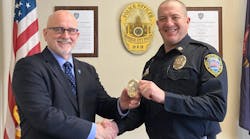I’ve been in the mental health field since 1990 so, as you can imagine, by this time I feel confident to call myself an expert in the diagnosis and treatment of depression. It is the number one issue that brings people into my office. It is also something I encounter every day, whether in my professional or personal life, because I have friends who have depression and it runs in my family. Based upon national statistics 1 in every 4 people are being treated for depression and even more go undiagnosed.
Depression is hard to heal from and it is not easy to live with. Believe it or not, it is not something someone can just “pull themselves up by their bootstraps” from, “exercise out,” or “just forget about and move on.” Rather, depression requires intentional changes in a person’s behavioral choices and thought processes to begin the healing process of this medical condition.
There are a lot of myths surrounding depression and, even in this day and age of constant media coverage and education, there are still a lot of negative biases towards people who have depression. In our presentation Police Morale for Supervisors: It IS Your Problem! we do a section on the personal reasons someone may be exhibiting low morale. When I start presenting on depression it never fails; there is always someone, or sometimes even a group, among the supervisors who believe depression is a “made up” condition. They believe it is something that classifies someone as emotionally weak or somehow lesser of a person. We get the same reaction when we present our training on officer wellness called More Than A Cop: Emotional & Relationship Survival for Law Enforcement. I wish I was used to this reaction, but each time I hear an officer’s argument against depression being a legitimate, and not made up, it shocks, amazes, and saddens me, for I know this officer’s belief becomes a part of the reason depression remains a silent killer among LEOs. All it takes is for one person, especially a person who is in power or highly respected in the department, to hold a strong negative opinion that will foster an environment of shame and silence. It takes a lot of courage to argue for the depression diagnosis rather than to give into someone’s strong opinion that it doesn’t exist, it’s only for the weak, it’s all psychobabble, or it is a way for drug companies to make money. If you are one of these people who hold negative opinions of the diagnosis of depression, please do me a favor: clear your mind and try to take a fresh new look at what depression truly is. We will start in this series by addressing some of the myths.
Depression is not a real medical illness.
According to NAMI (National Alliance on Mental Health), “Major depression is a serious medical illness affecting 15 million American adults, or approximately 5-8 percent of the adult population in a given year. Unlike normal emotional experiences of sadness, loss or passing mood states, major depression is persistent and can significantly interfere with an individual's thoughts, behavior, mood, activity and physical health. Among all medical illnesses, major depression is the leading cause of disability in the United States.” Over the years much research has been done on depression and its genesis has been shown to be rooted in genetic and biological causes. Individuals coping with depression have a higher level of stress hormones present in their bodies, and brain scans of depressed patients show decreased activity in some areas of the brain. Depressed people have a lack of or overproduction of certain chemicals needed in the brain to be released into the bloodstream to stabilize a person’s mood. Without the proper chemical release a person’s mood will fluctuate and go to lows from which a person cannot rebound back without the proper medical help and interventions.
Depression only affects the weak & mentally unstable.
Not true! Some famous people who have been open about their depression are Mike Wallace of 60 Minutes, Larry King, former Israel Prime Minister Menachem Begin, Marlon Brando, Truman Capote, Winston Churchill, Dick Clark, Calvin Coolidge, Harrison Ford, Anthony Hopkins, Elton John, John Lennon, Richard Nixon, Deborah Norville, Boris Yelstin, and even General George S. Patton. Depression is not selective in who it affects; even productive, strong people who have made significant changes in this world and are proven leaders have been diagnosed with clinical depression.
Just get over it already! Stop dwelling on it! You crybaby!
Oh, man if this was true, I’d so be out of a job. I like those solutions. It would make this world an easier place because, seriously, who would choose depression if the answer was as simple as just get over it. Exercise more. Eat the right foods. Take supplements. Just think/will it away. People who are depressed have already tried the simple answers. I can tell you, they wish they would work, but they don’t have long-lasting effects. It would be like comparing a person who has the common cold to having pneumonia and telling them to take more Vitamin C. Nice idea, wish it would work, but it doesn’t.
As I stated in the beginning of the article it takes intentionality to change behaviors and thought processes, and often seeing medical professionals as a licensed therapist or a psychiatrist to treat the depression. Treatment of depression can be as short as 6 weeks for some, and several years for others. There is no one answer that fits all sizes.
I’m able to function, hold a job, and get out of bed, so I’m not depressed.
Depression comes in all shapes, sizes, and colors. It can be a low grade, persistent sadness or an illness that sucks the life out of someone… maybe literally. One of the quickest and easiest questions I ask people to determine if they have depression is, “Do you have more good days or bad days?” Depression can be as simple as more bad days than good days. This is when I know I need to begin the screening to evaluate the intensity of the depression.
I wish we had more space and time to address the myths often carried by police cultures that prevent an individual from seeking out the appropriate level of care for the treatment of their medical issue. It has been reported that more cops die from their own gun each year than from line of duty deaths, about 300 or more each year. The prevention of the line-of-duty deaths is constantly stressed to keep officers safe because we all know: Complacency kills. Continuous awareness of the dangers you face and continuous analysis of how to confront them are critical components of staying alive. But we also need skill training for survival off the streets; knowing how to take care of yourselves and each other psychologically and emotionally is just as critical to maintain officer wellness and the longevity of this honorable profession.
Complacency in our mood can kill as well.
Next month this series will continue. In the meantime we welcome your feedback and comments.
Web Links:
About The Authors:
Althea Olson, LCSW has been in private practice in the Chicago suburbs since 1996. She has a Master of Social Work degree from Aurora University providing individual, couple, & group therapy to adolescents, adults, and geriatrics. Althea is also trained in Critical Incident Stress Management & is a certified divorce mediator.
Mike Wasilewski, MSW has been with a large suburban Chicago department since 1996. He holds a Master of Social Work degree from Aurora University and has served on his department’s Crisis Intervention & Domestic Violence teams. Mike is an adjunct instructor at Northwestern College.
Mike & Althea have been married since 1994 and have been featured columnists for Officer.Com since 2007. Their articles are extremely popular and they now provide the same training and information in person throughout the United States. This dynamic team was recently featured at the at the 2010 & 2011 ILEETA Conference & Exposition.
Out of their success has come the formation of More Than A Cop where the focus is providing consultation and trainings on Survival Skills Beyond The Street.


